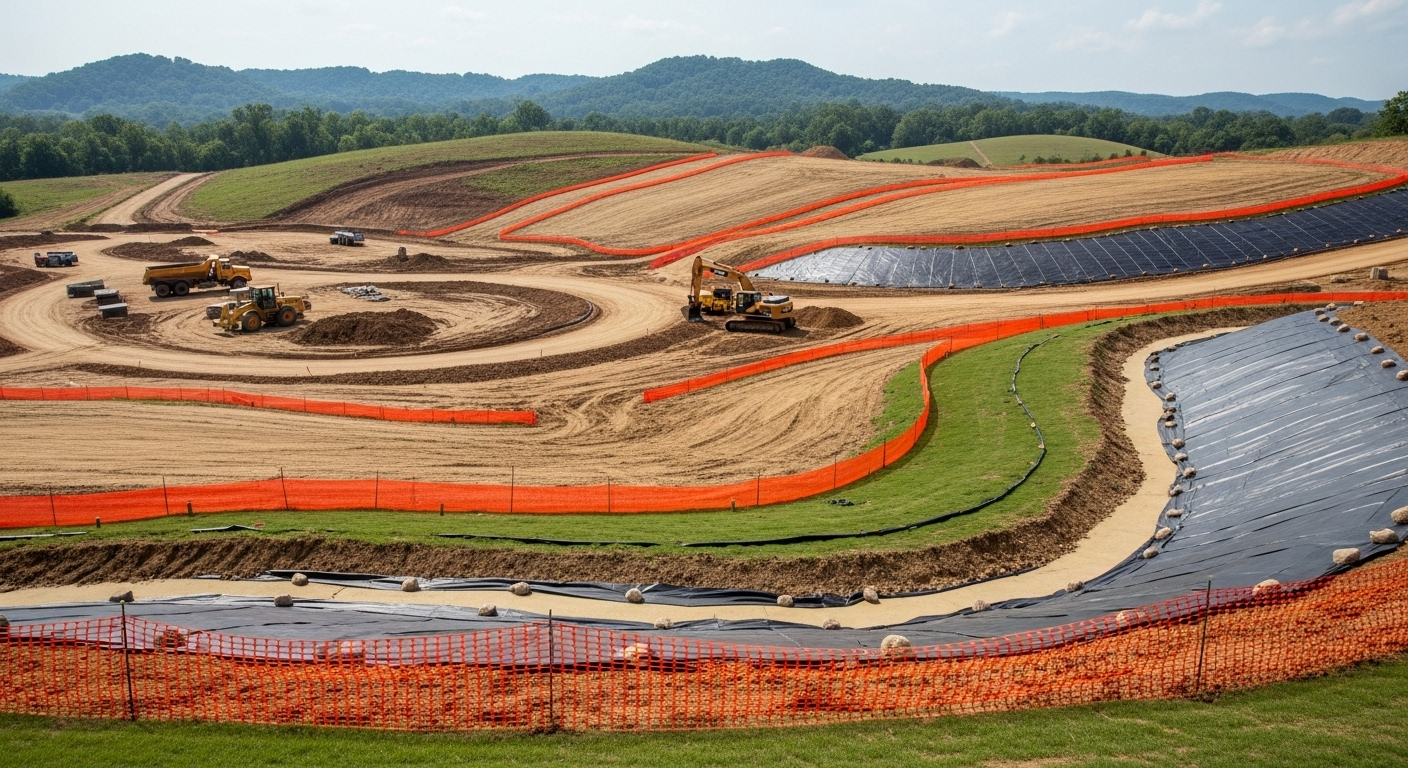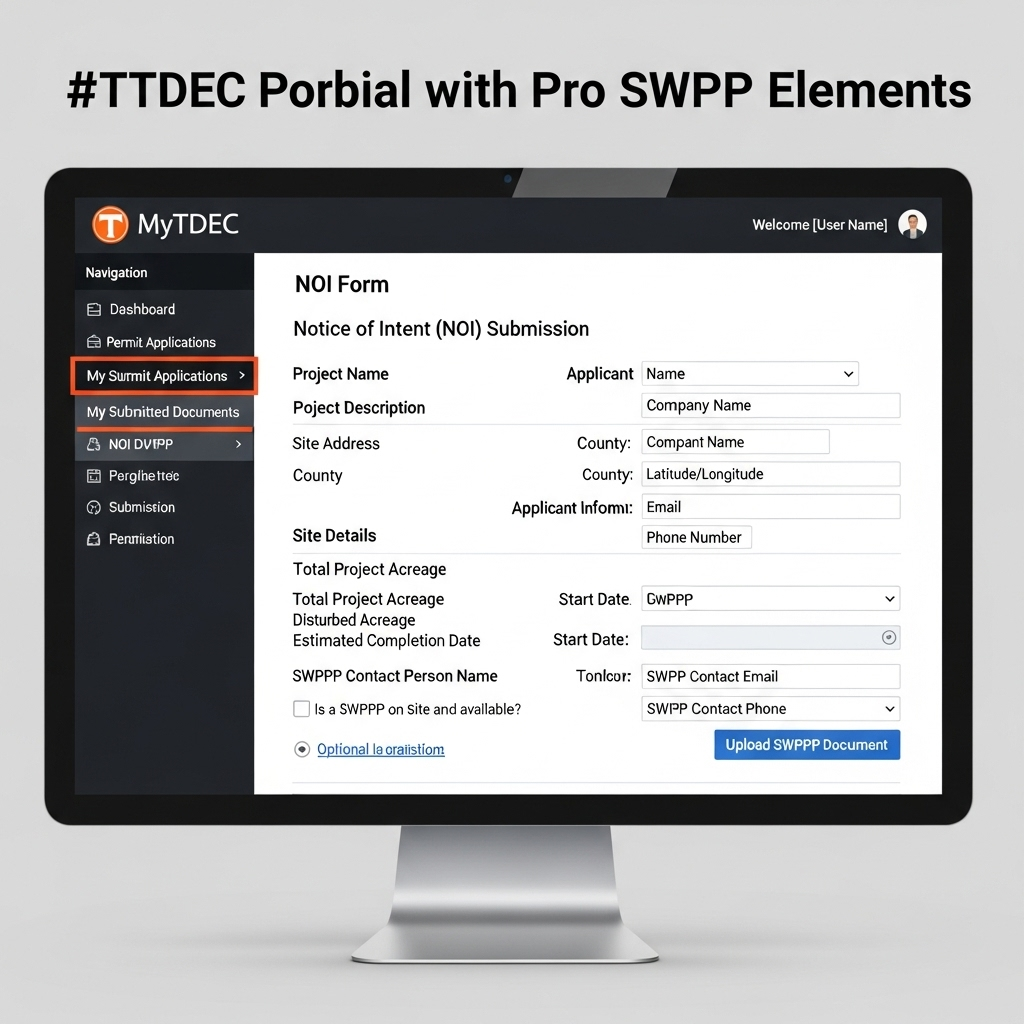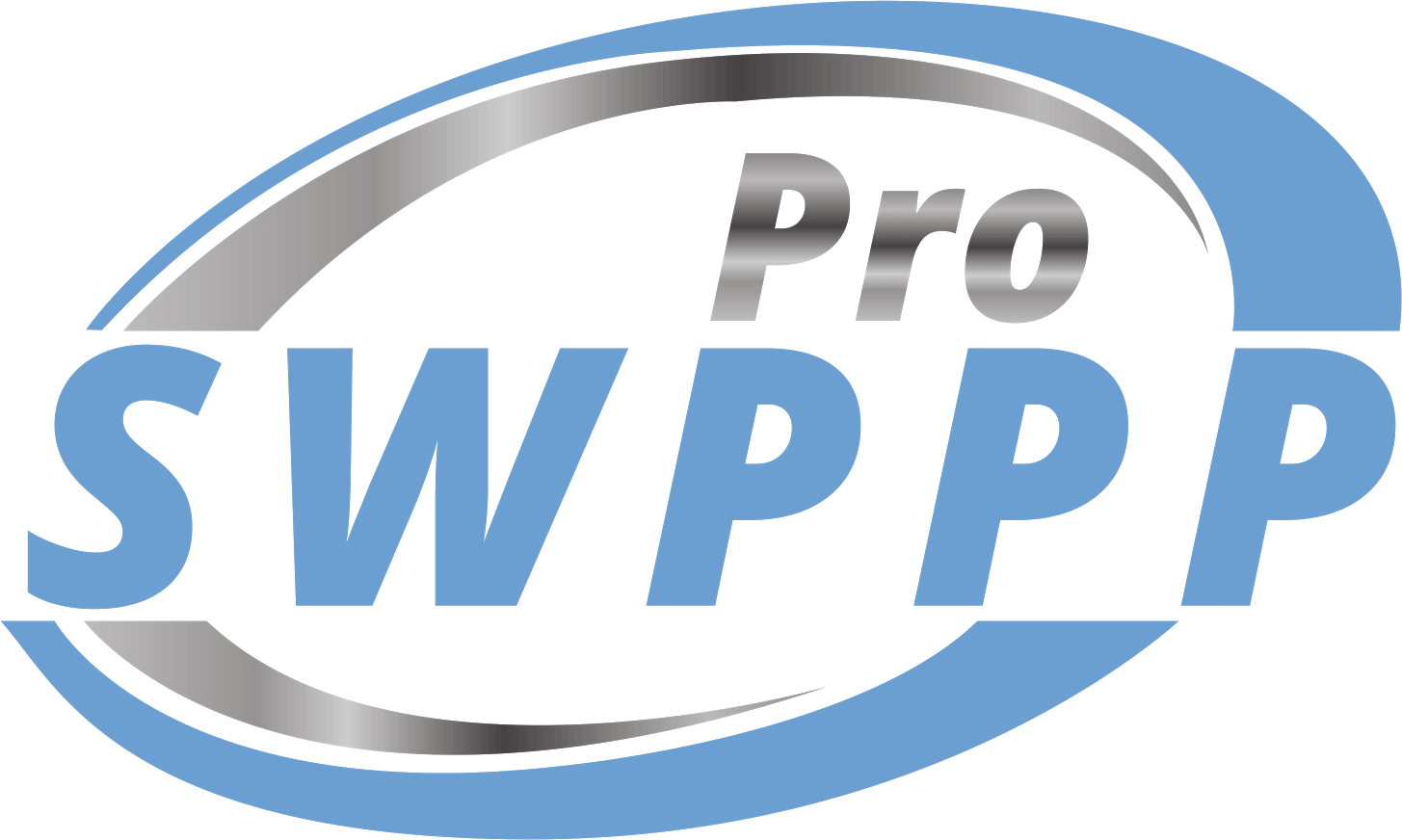Running a construction project in Tennessee without knowing the stormwater rules? That’s like playing Russian roulette with your business. One wrong move and you’re looking at $50 to $5,000 per day in fines. Let me break down exactly what you need to know about Tennessee SWPPP requirements so you don’t get burned.
Here’s the deal: If you’re disturbing one acre or more of land in Tennessee, you need a Stormwater Pollution Prevention Plan (SWPPP) and a Notice of Intent (NOI). No exceptions. The Tennessee Department of Environment and Conservation (TDEC) doesn’t mess around with this stuff.
Who Needs a SWPPP in Tennessee?
Let’s cut through the confusion. You need a SWPPP if your construction project meets these criteria:
- Disturbs one acre or more of land
- Is part of a larger common plan that disturbs one acre or more
- Discharges stormwater that could reach local bodies of water of the United States
- Falls under the National Pollutant Discharge Elimination System (NPDES) General Permit
Think you’re safe with a smaller project? Think again. Even if your site is 0.8 acres, but it’s part of a 2-acre development, you still need coverage under the Construction General Permit (CGP).

The Clean Water Act doesn’t care about your timeline or budget. It cares about protecting Tennessee’s waterways from construction runoff. And TDEC is the enforcer, making sure everyone plays by the rules.
What Goes Into a Tennessee SWPPP?
Your SWPPP isn’t just a piece of paper you file away. It’s your roadmap for keeping pollutants off your site and out of Tennessee’s streams, rivers, and lakes. Here’s what TDEC wants to see:
Site Description
You need to spell out everything about your project. Location, size, type of construction, how long it’ll take, and what sequence you’re doing the work. Don’t forget to identify all your pollutant sources – exposed soil, chemicals, fuel storage, you name it.
Erosion and Sediment Controls
This is where your Best Management Practices (BMPs) come in. We’re talking silt fences, sediment traps, temporary seeding, mulching, and wattles. The Tennessee Erosion Prevention and Sediment Control Handbook is your bible here – it’s the fourth edition and it’s packed with standardized control methods.
Your Erosion Control and Sediment Control measures need to be mapped out clearly on your site plans. TDEC inspectors want to see exactly where everything goes.
Good Housekeeping Practices
This covers your waste management, chemical storage, fuel handling, and spill response plans. Every location needs to be marked on your site maps. Trust me, the inspectors will check.
Don’t want to mess with all the paperwork and requirements? Check out Order your SWPPP now with Pro SWPPP Professional CPESC Certified SWPPP Services.
The Notice of Intent Process
Your Notice of Intent (NOI) is your application for permit coverage. You submit it through TDEC’s MyTDEC online system along with your SWPPP before you start construction. Not after you start, not when you remember to do it – before.

TDEC confirms your permit coverage after submission. No confirmation means no coverage. No coverage means you’re operating illegally and setting yourself up for major fines and project delays.
Inspections and Maintenance
Getting your SWPPP approved is just the beginning. You need to conduct regular inspections and keep detailed records for at least three years after your permit expires. We’re talking spill incidents, corrective actions, maintenance activities – everything.
Some industrial facilities need quarterly inspections. Construction sites typically need weekly inspections and after every storm event. Miss an inspection? That’s a violation waiting to happen.
Your SWPPP isn’t a set-it-and-forget-it document either. Facility conditions change? Update your SWPPP. Storm damages your BMPs? Update your SWPPP and fix the problems fast.
Local Requirements Add Another Layer
Here’s where it gets tricky. Many Tennessee cities and counties have their own stormwater ordinances on top of the state requirements. These local rules often require annual inspections by qualified professionals and can hit you with the same $50 to $5,000 daily fines.
Williamson County, Montgomery County, Bristol – they all have their own enforcement programs. What works in Nashville might not fly in Memphis. You need to check local requirements wherever you’re building.
Not sure what your project needs? Take our SWPPP Quiz or Schedule a Free SWPPP Consultation with CPESC Certified SWPPP Expert Derek E. Chinners.
Common Mistakes That Cost Money
I see contractors make the same mistakes over and over. Don’t be one of them:
- Waiting too long to submit the NOI – submit early to avoid permit delays
- Treating the SWPPP like a static document – it needs regular updates
- Installing BMPs wrong or not maintaining them properly
- Skipping inspections or not documenting them correctly
- Thinking federal compliance is enough – local requirements matter too
The Bristol Wastewater Treatment Plant keeps detailed records of quarterly inspections, spill incidents, and special salt storage runoff controls. That’s the level of documentation you need.
What’s Coming Next
Tennessee is moving toward more electronic reporting through systems like MyTDEC and NetDMR. The University of Tennessee’s MS4 program shows where things are heading – comprehensive stormwater management with public education, pollution prevention, and post-construction controls.
More cities are adopting low-impact development techniques and permanent stormwater control measures. The rules aren’t getting easier – they’re getting more comprehensive.
If you’re working in multiple states, we offer SWPPP services across the nation. You can review state-specific requirements or contact us to learn more.
Post-Construction Controls
After a construction project is completed, it’s important to manage stormwater runoff to protect the environment. Post-construction stormwater management measures help control the flow of water and prevent pollution. These measures include permeable pavements, rain gardens, and retention ponds.
Permeable pavements allow water to soak through the surface, reducing runoff. Rain gardens are planted areas that absorb rainwater and filter pollutants. Retention ponds collect stormwater, letting sediment settle slowly before the water is released.
FAQs
Do I need a SWPPP for a 0.5-acre site in Tennessee?
Only if it’s part of a larger common plan of development that disturbs one acre or more total. Otherwise, you’re under the threshold for NPDES permit coverage.
How long does it take to get SWPPP approval in Tennessee?
TDEC typically processes NOIs within a few business days through the MyTDEC system, but submit early to avoid any delays in your construction timeline.
Can I write my own SWPPP in Tennessee?
Legally, yes. Practically, it’s risky unless you’re familiar with Tennessee’s specific requirements, local ordinances, and the technical standards in the Erosion Prevention and Sediment Control Handbook.
What happens if I start construction without a SWPPP in Tennessee?
You’re looking at fines ranging from $50 to $5,000 per day per violation, plus potential project shutdown until you get compliant.
Do I need to update my SWPPP during construction?
Yes. Any time your site conditions change, BMPs are modified, or inspections reveal problems, your SWPPP needs updates to stay current and effective.
Need help with your Tennessee stormwater compliance? Contact us or learn more about Pro SWPPP’s certified services. Don’t let stormwater violations derail your project when professional help is available.
Get your Tennessee SWPPP handled right the first time with America’s #1 SWPPP service: Pro SWPPP.
